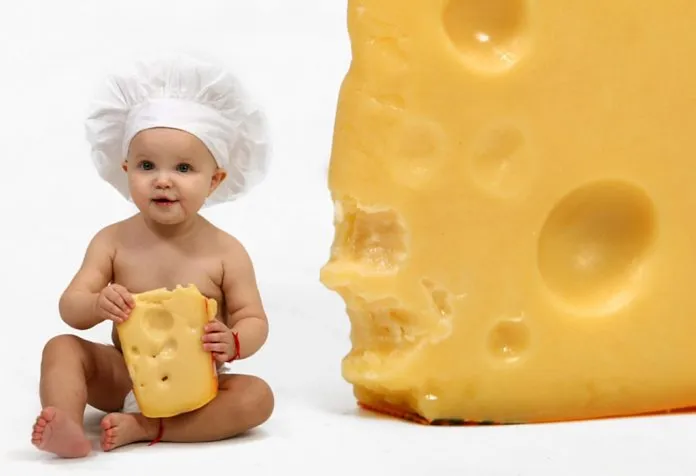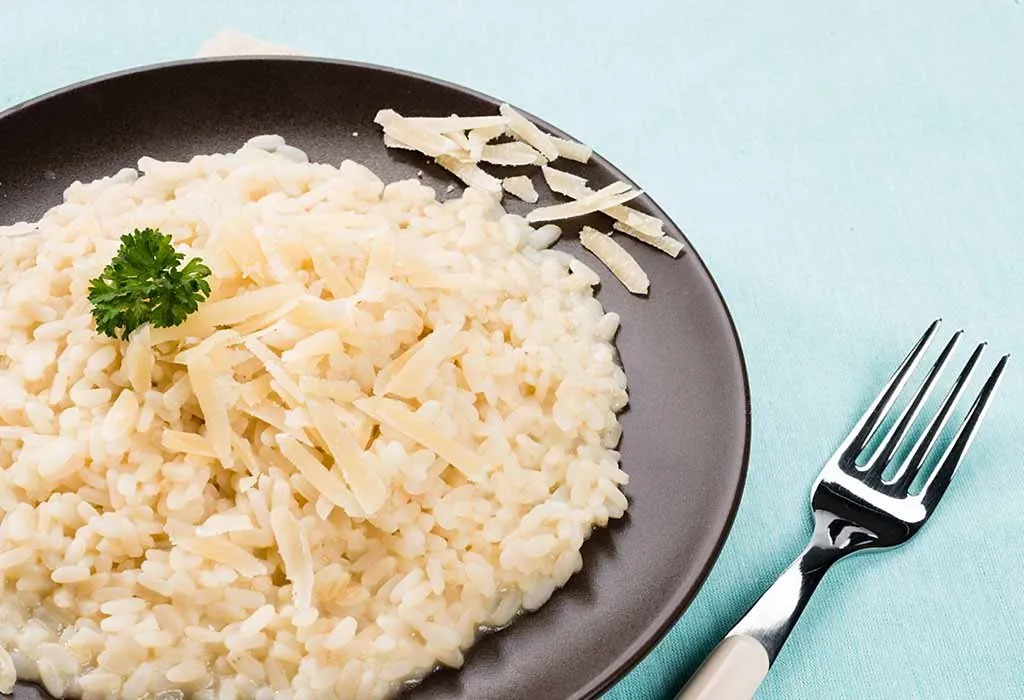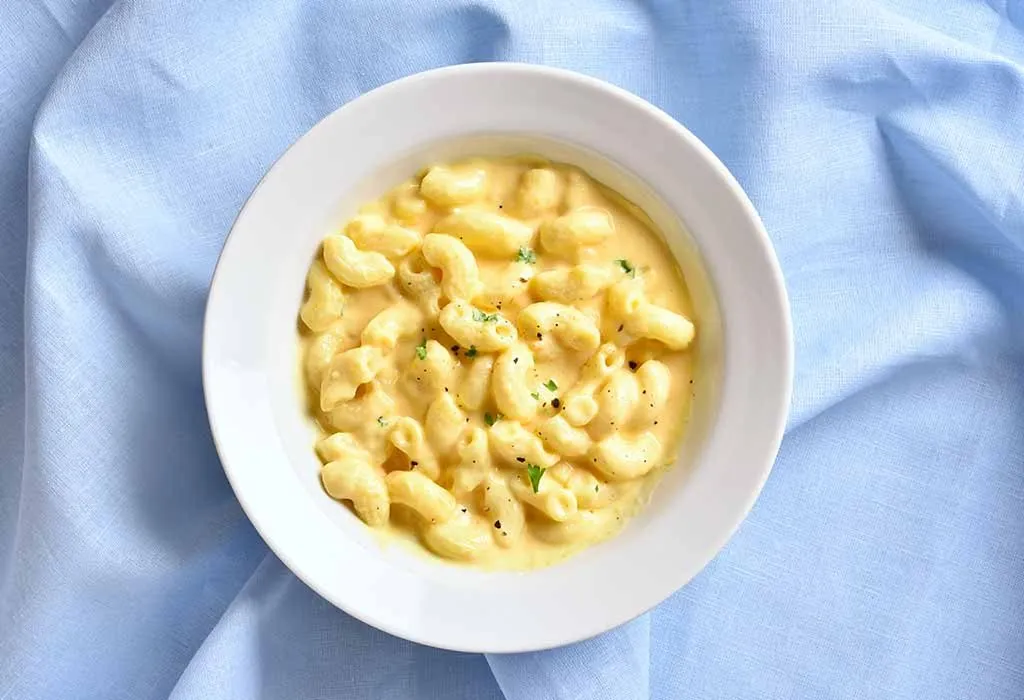What Age Can You Give Baby Cream Cheese


At FirstCry Parenting, our aim is to give you the most elevant, accurate and up to date information.
Every article that we publish, confirms to stringent guidelines & involves several levels of reviews, both from our Editorial team & Experts. We welcome your suggestions in making this platform more useful for all our users. Write in to us at parenting.care@firstcry.com

- When Can a Baby Eat Cheese?
- Health Benefits of Cheese for Babies
- List of Safe and Unsafe Cheeses for Infants
- How To Introduce Cheese To Babies
- Precautions To Take While Feeding Cheese To Babies
- Delicious Cheese Recipes for Babies
Last Updated on
Cheese not only tastes great but is also nutritious and loaded with essentials such as proteins, calories, vitamin A, D, and B12. As your baby grows older, you might want to add cheese to his diet for its taste and nutritional value. Continue reading for all the information you need to know about introducing your baby to cheese.
When Can a Baby Eat Cheese?
Most babies can be offered cheese as soon as they start chewing or gumming different foods. This usually begins around 6 to 9 months. Depending on where you are in the world, experts differ in opinion on when is a good time to start feeding cheese to babies. Some suggest waiting till the baby is eight months of age, and some say it should be given after the baby is a year old.
The hesitation is because cheese is a dairy product, and the milk proteins present in cheese are known to cause stomach issues in babies younger than a year old. However, some argue that milk proteins break down as the cheese matures and don't cause any problems. On the other hand, some babies could be allergic to milk and dairy products. Therefore, such children should only be given cheese after discussing with their paediatrician.
Health Benefits of Cheese for Babies
Cheese is delicious as well as easy to incorporate into a wide variety of foods. Not only will your baby eat it without a fuss, but he will also get plenty of health benefits from cheese. Some of them are as follows:
- Cheese is rich in calcium, which is needed for the development of healthy teeth and bones.
- Cheese is rich in protein and nutrients such as Vitamin D needed for building the body.
- Vegetarian families benefit a lot from cheese as it is rich in Vitamin B12 and protein, which are otherwise abundantly found in meat.
- Cheese is loaded with calories that will keep your baby supplied with all the energy he needs throughout the day.
- Cheese is good for teeth and is known to prevent tooth decay.
List of Safe and Unsafe Cheeses for Infants
There are different varieties of cheese to choose from when you're looking for the ones you can feed your baby. However, not all cheeses are suitable for babies; especially, cheeses made from unpasteurized milk must be avoided altogether.
- Safe cheeses for infants
Parents have to be really careful when choosing dairy products such as cheese as it certain cheeses carry listeria, which is a bacterium that can cause foodborne infections that can be fatal to babies. Therefore, it is advisable to consume cheese made out of pasteurised milk.
For those wondering what kind of cheese can a baby eat, here is a list:
- Cheddar
- Edam
- Parmesan
- Colby
- Colby jack
- Mozzarella
- Swiss
- Romano
- Monetary jack
- Paneer
- Babybel
- Red Leicester
- Provolone
- Jarlsberg
- Cheshire
- Lancashire
- Gouda
- Grana Padano

Here is a list of soft cheese for babies which most people avoid. However, they are perfectly okay for babies to have:
- Cottage Cheese
- Mascarpone
- Ricotta
- Cream Cheese
- Cheese spreads that are made out of real cheese.
2.Cheeses that should be avoided until the baby is a year old
Here is a list of cheeses you should avoid giving to your baby till he is a year old as they are often made out of raw or unpasteurised milk:
- Camembert
- Brie
- Chevre
- Queso Fresco
- Queso Blanco
- Stilton
- Danish Blue
- Saga
- Gorgonzola
- Wensleydale
- Roquefort
3.Avoid processed cheese
Processed cheese is not a pure form of cheese. Although it may look and taste like cheese, it is usually loaded with added flavours and emulsifiers. They are manufactured by adding flavour enhancers and preservatives to cheese to make it last longer. Therefore, try not to buy any off-the-shelf processed cheese to feed your baby as the chemicals present in it is not suitable for him. Look for natural cheeses in organic stores that are made out of natural ingredients.
How To Introduce Cheese To Babies
When you decide to introduce cheese to your baby, there are a few good ways to go about it. Remember to start with only those cheeses that have a mild taste. Sharp-tasting cheeses might taste repulsive and make the baby dislike it immediately. Here are a few methods to start with:
- Melt cheese
Melt cheese over a bit of bread or crackers to feed it to him as a snack.
2.Cut Cheese into Bits
Give him tiny bits of cheese that are small enough for him to pick up. Make sure the pieces are small to avoid the risk of choking.
3.Mix with Vegetables
Melt some cheese over diced vegetables and wait for it to dry. Let it be in small bits easy enough to pick up.
4.With Eggs
Add a little cheese to scrambled eggs while preparing it.
5.With Pastas
Cream cheese for a baby can be started with pasta. It spreads well and tastes great.
Precautions To Take While Feeding Cheese To Babies
Like with any other new food that you introduce your baby to, cheese also carries a risk of allergy. Check out these precautions before you start:
- Observe carefully
An allergic reaction can start as early as 20 minutes or within the first few hours. Look for symptoms such as swollen lips, redness in the eyes and face, and rashes on the skin; these are indicators of an allergic reaction. If your baby is lactose intolerant, you might see him experiencing gastric issues, stomach cramps, and diarrhoea.
2.Consult the paediatrician
If your baby is known to have allergies to dairy products or has eczema or asthma, talk to the paediatrician about feeding cheese and only do it if they permit.
3.Try different cheeses
You baby might develop a taste for one cheese and dislike the others. Therefore, if he doesn't like any of the cheeses that you're giving him, all is not lost. Keep trying different varieties of cheese.
Delicious Cheese Recipes for Babies
The best thing about cheese is how easily it can be incorporated into different foods that you can easily prepare. Here are some delicious cheese recipes for babies:
- Cheese Omelette
Eggs and cheese are a yummy combination. To increase its nutrient quotient, add minced vegetables that your baby can easily swallow and digest.
What you will need:
- One Egg
- One teaspoon of milk or water
- One tablespoon of shredded cheese
- One teaspoon butter or oil

How to make:
- Whisk the milk and egg together in a bowl.
- Set the pan to medium heat and melt the butter on it. Once it stops bubbling, pour the egg mixture in the pan.
- Spread the mixture evenly over the pan.
- Let it cook until the mixture holds together like an omelette.
- Sprinkle the shredded cheese over the omelette and fold it in half.
- Cook for another 30 seconds.
- Cut it into bite-sized bits and serve.
2.Cheese Rice
If you have already introduced your baby to rice, it's time to make it tastier.

What you will need:
- Two tablespoons of baby rice
- 2 carrots
- 100 grams of cauliflower
- 1 tablespoon of grated cheddar cheese
How to make:
- Get the vegetables ready. Wash, peel, and slice them.
- Boil the vegetables together until they are tender.
- Save the water after you strain the vegetables. You'll need about 60 ml of it to blend the vegetables.
- Pour the rice into it along with the cheese and cook.
- Stir the mixture until the cheese melts.
- Serve warm.
3.Cheesy Pasta
Pasta is delicious, throw in a bit of cheese, and your baby will love it.

What you will need:
- 1 cup of cooked pasta
- Half a cup of chopped soft-cooked or pureed carrots
- Grated cheese that your baby likes
How to make:
- Mix the chopped carrots with pasta.
- Sprinkle grated cheese on top.
- Serve warm.
Cheese is an excellent addition to your baby's food. Experiment with different types to figure out what he likes. Include the different kinds of cheese in his diet to expand his taste palette and gain the healthy nutrients that cheese has to offer. Remember to consult your doctor before introducing your baby to solid foods, especially cheese, and always check for allergies before including cheese in your baby's diet.
Resources & References: Babycentre, What to Expect
Also Read: 1 Year Old Baby Food Ideas
What Age Can You Give Baby Cream Cheese
Source: https://parenting.firstcry.com/articles/cheese-for-babies-health-benefits-precaution-and-more/